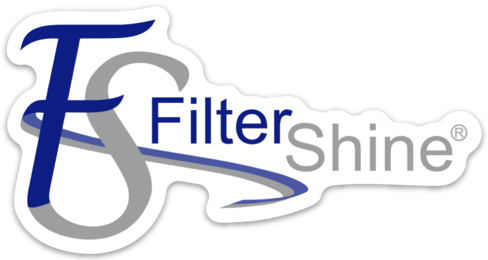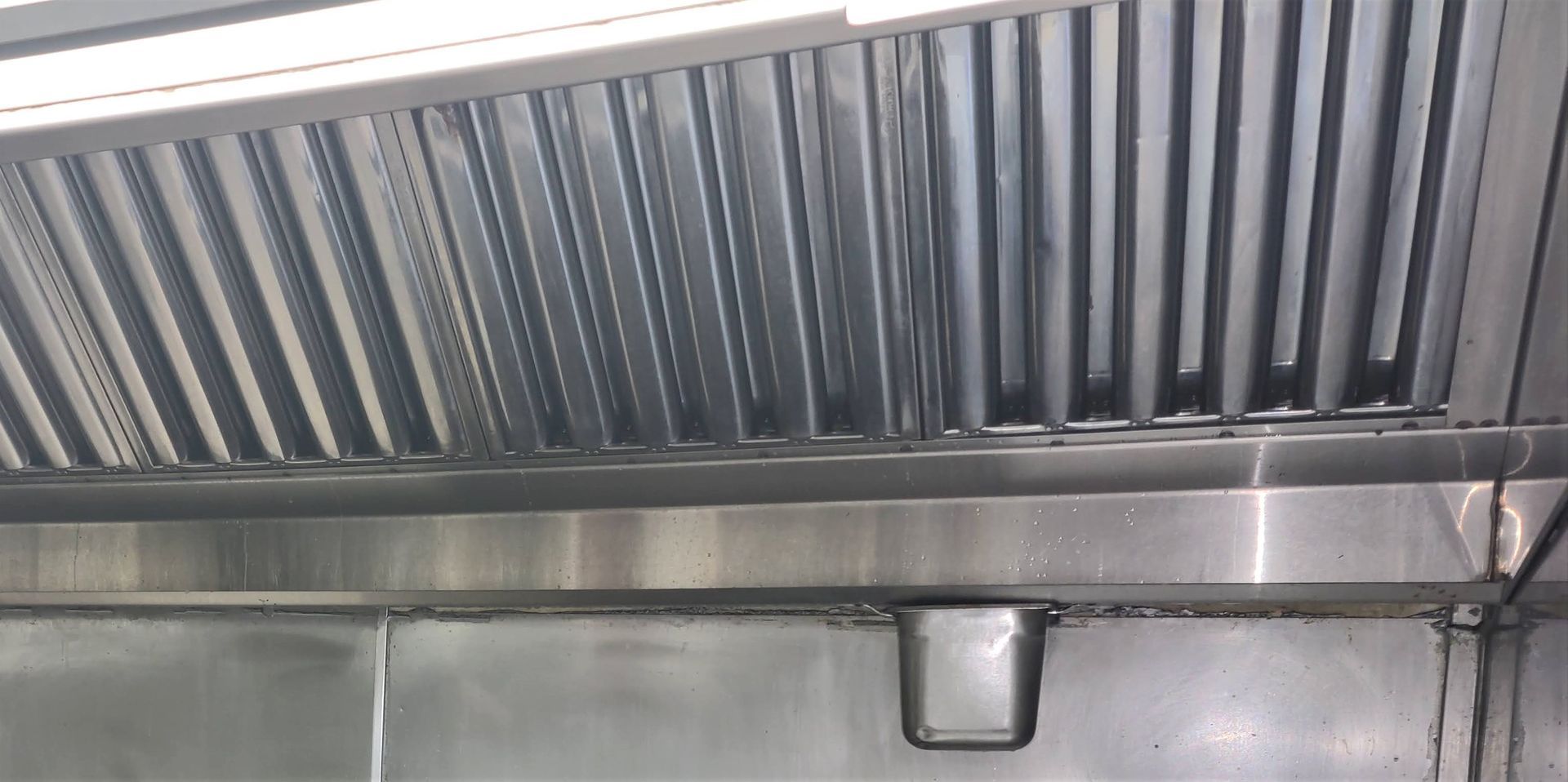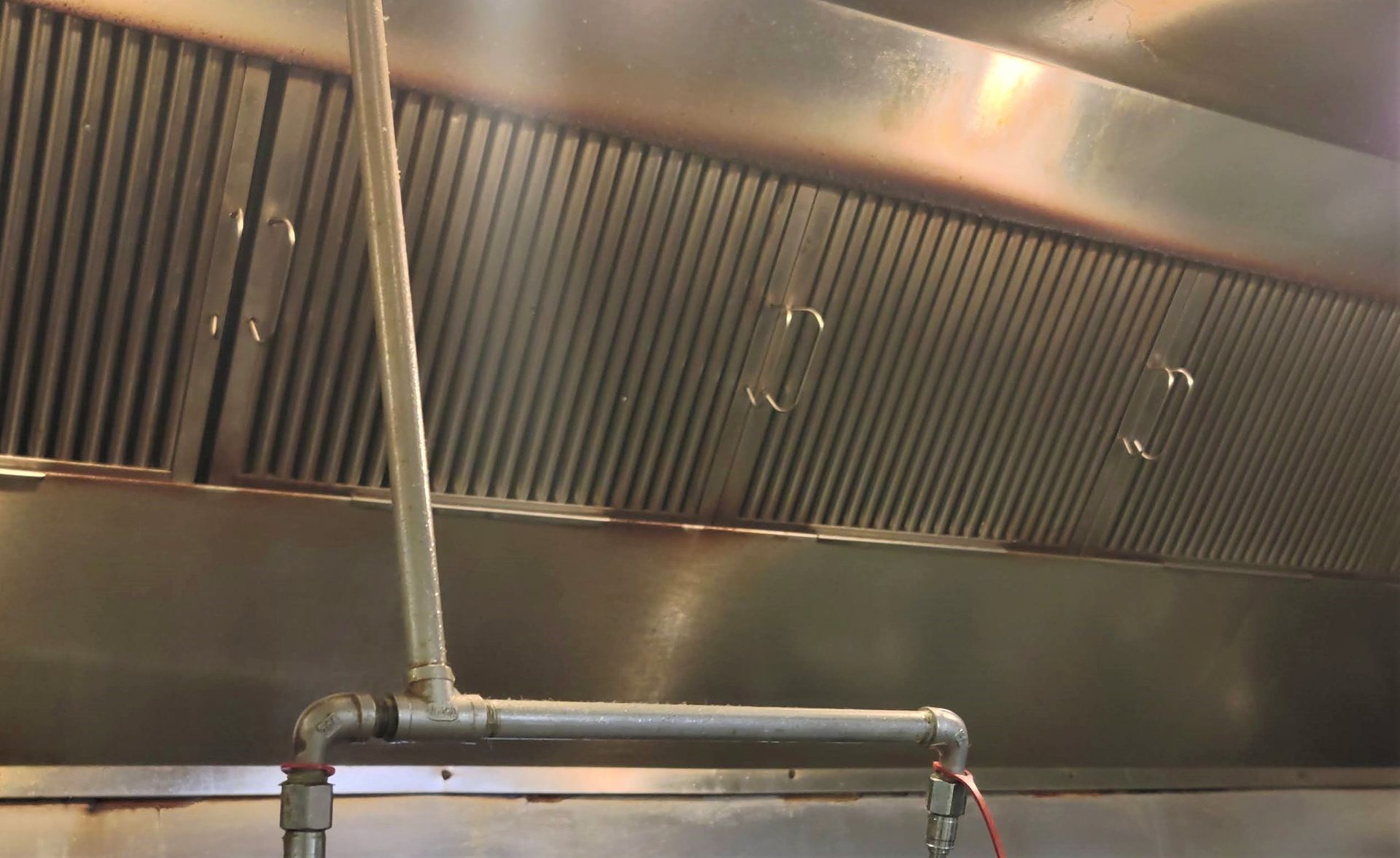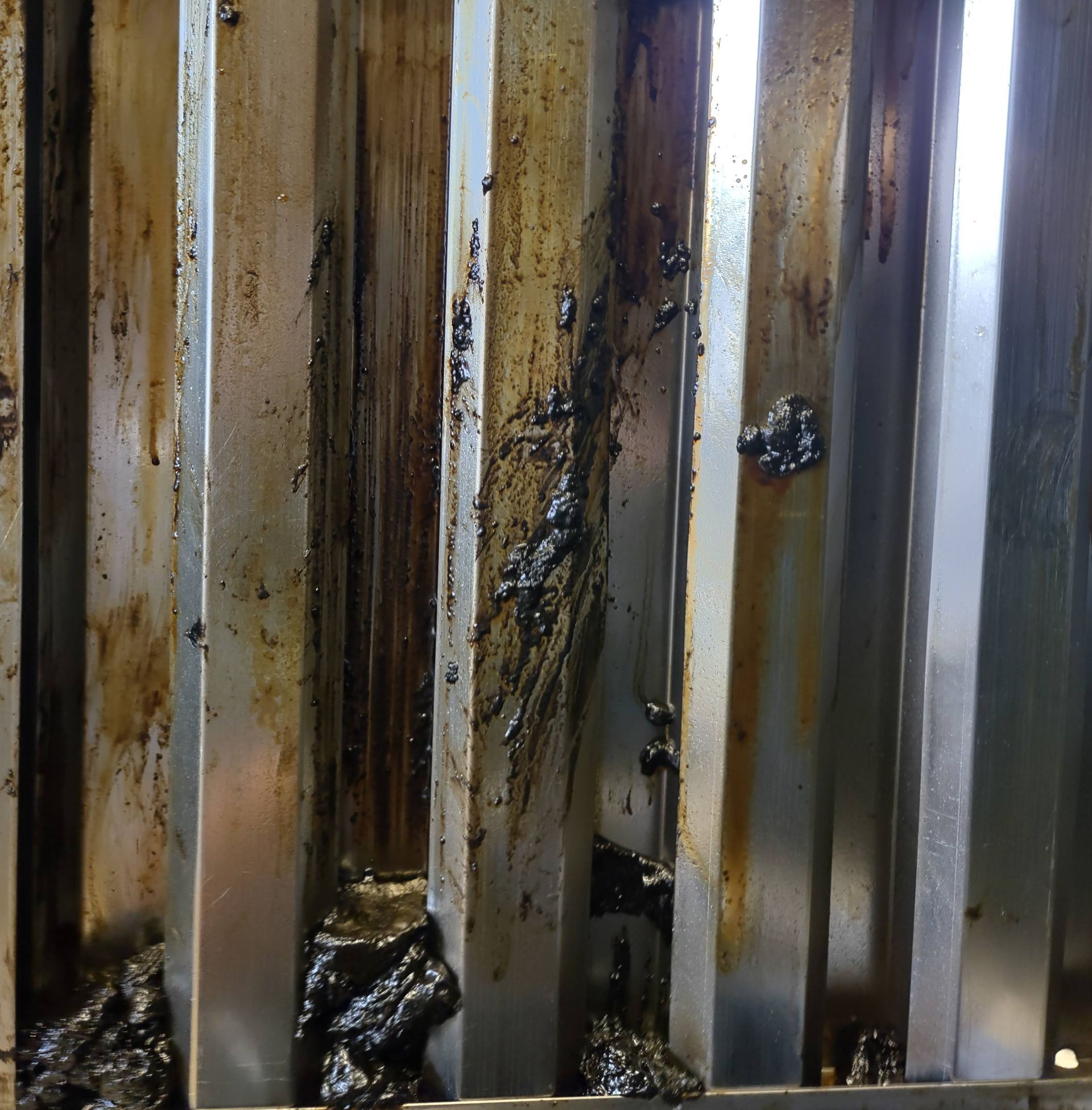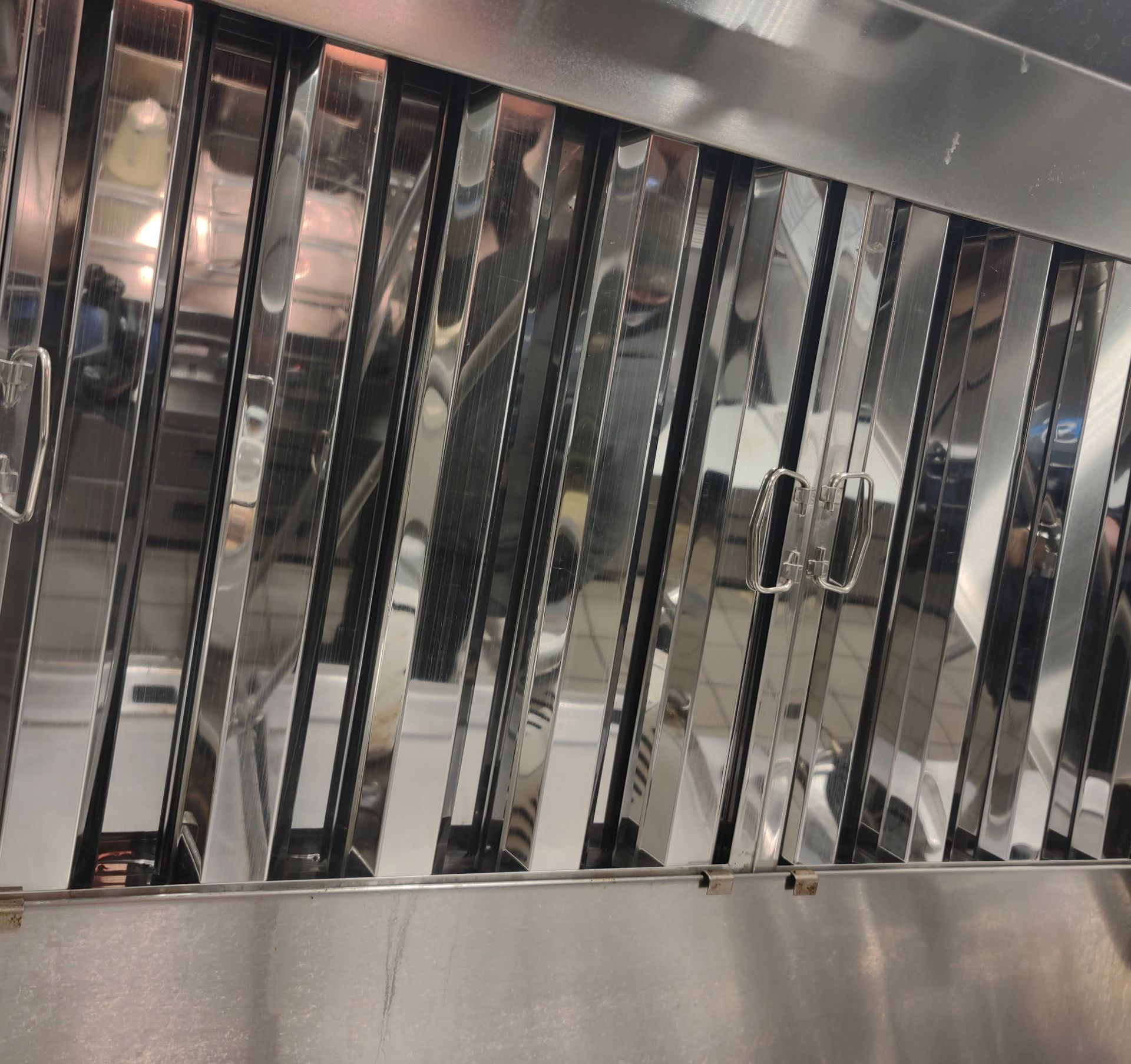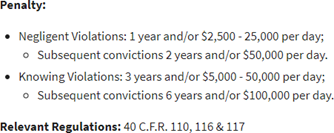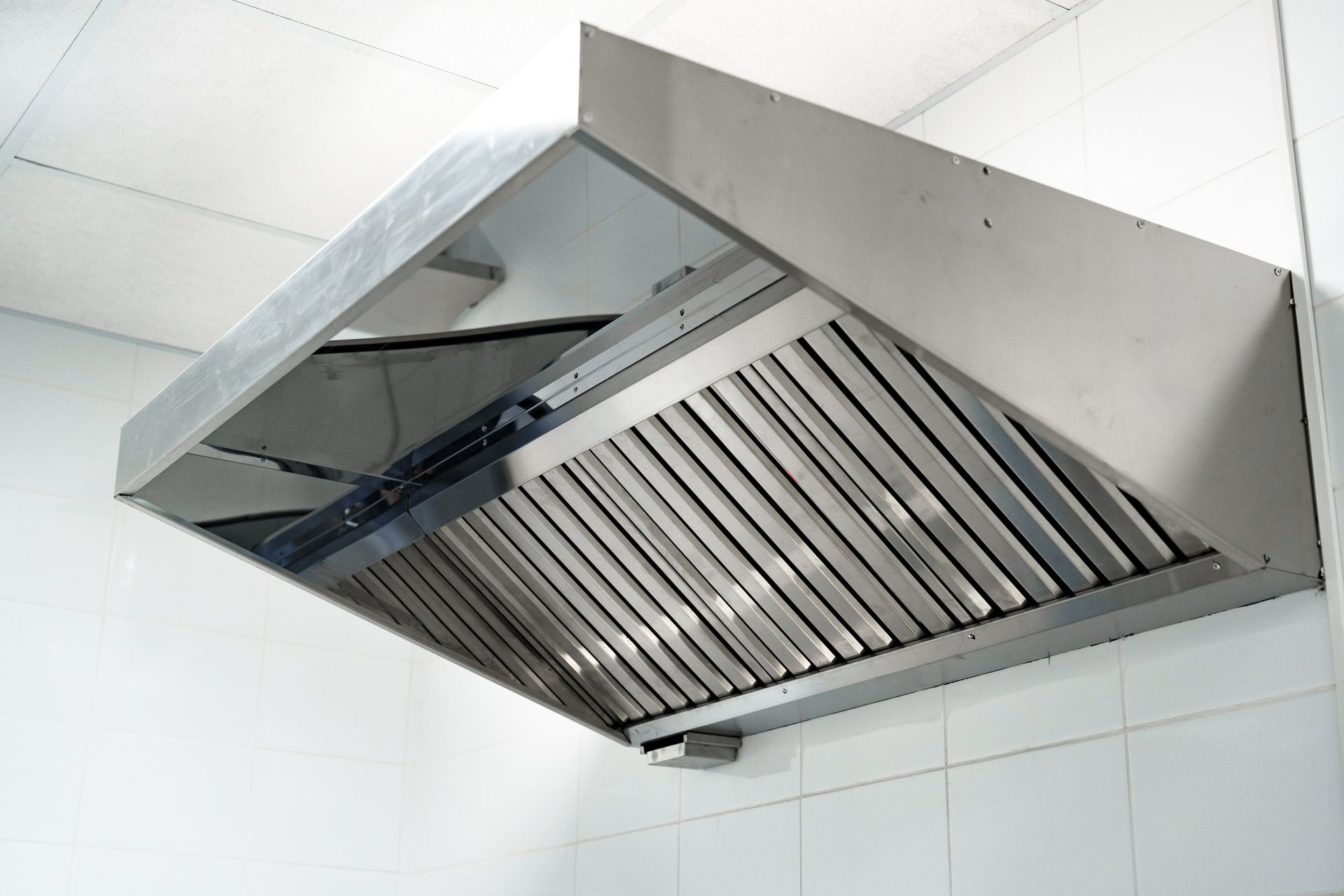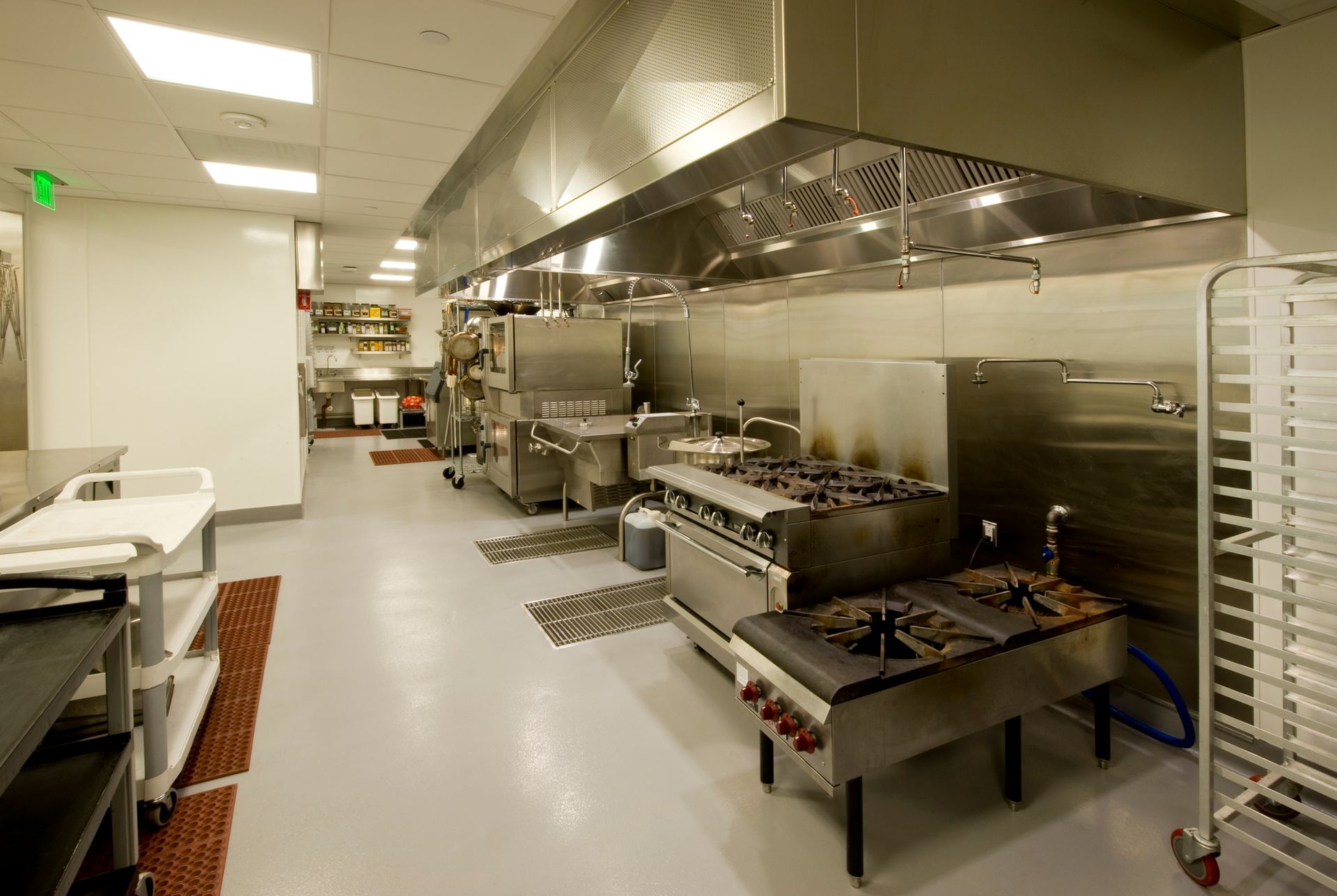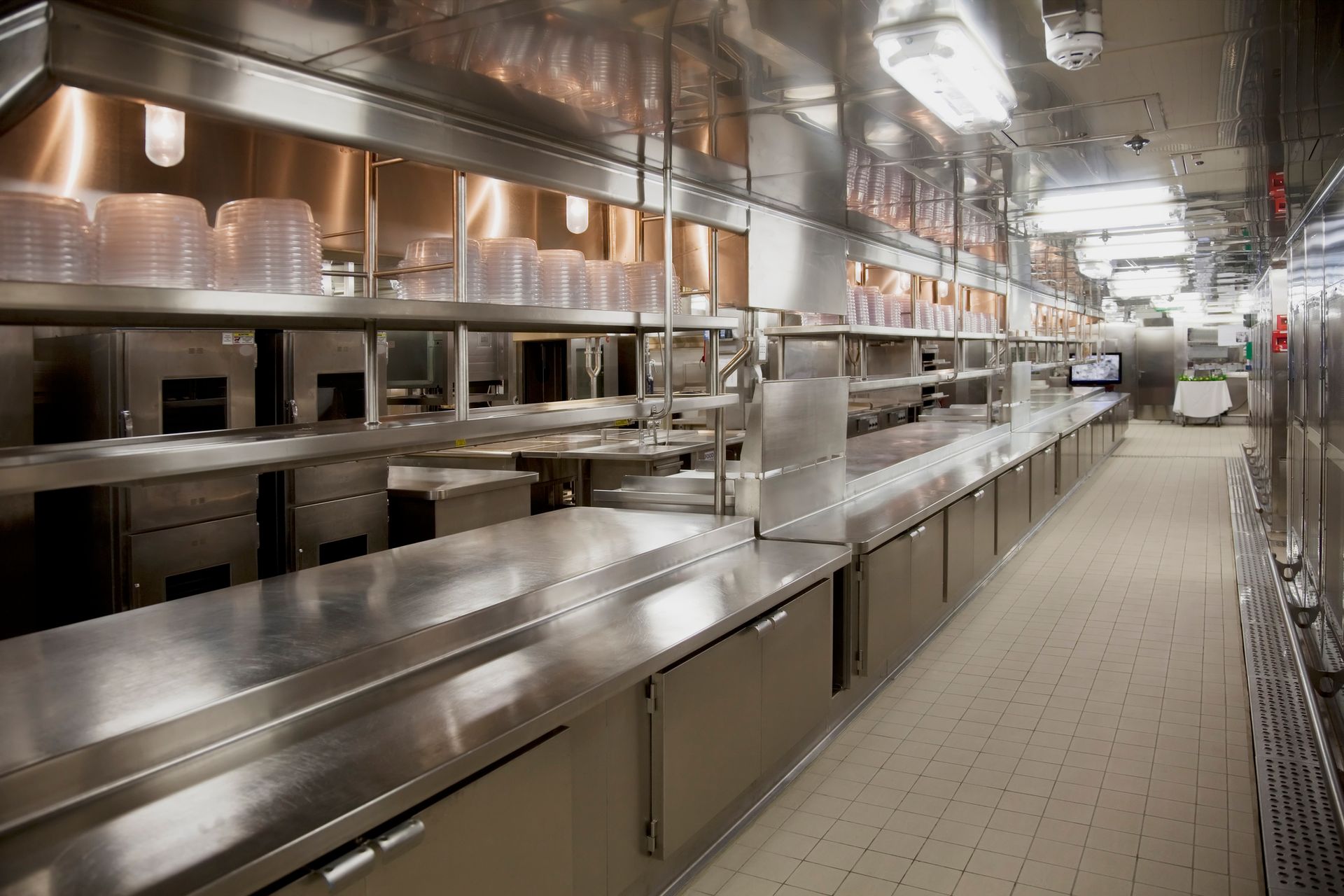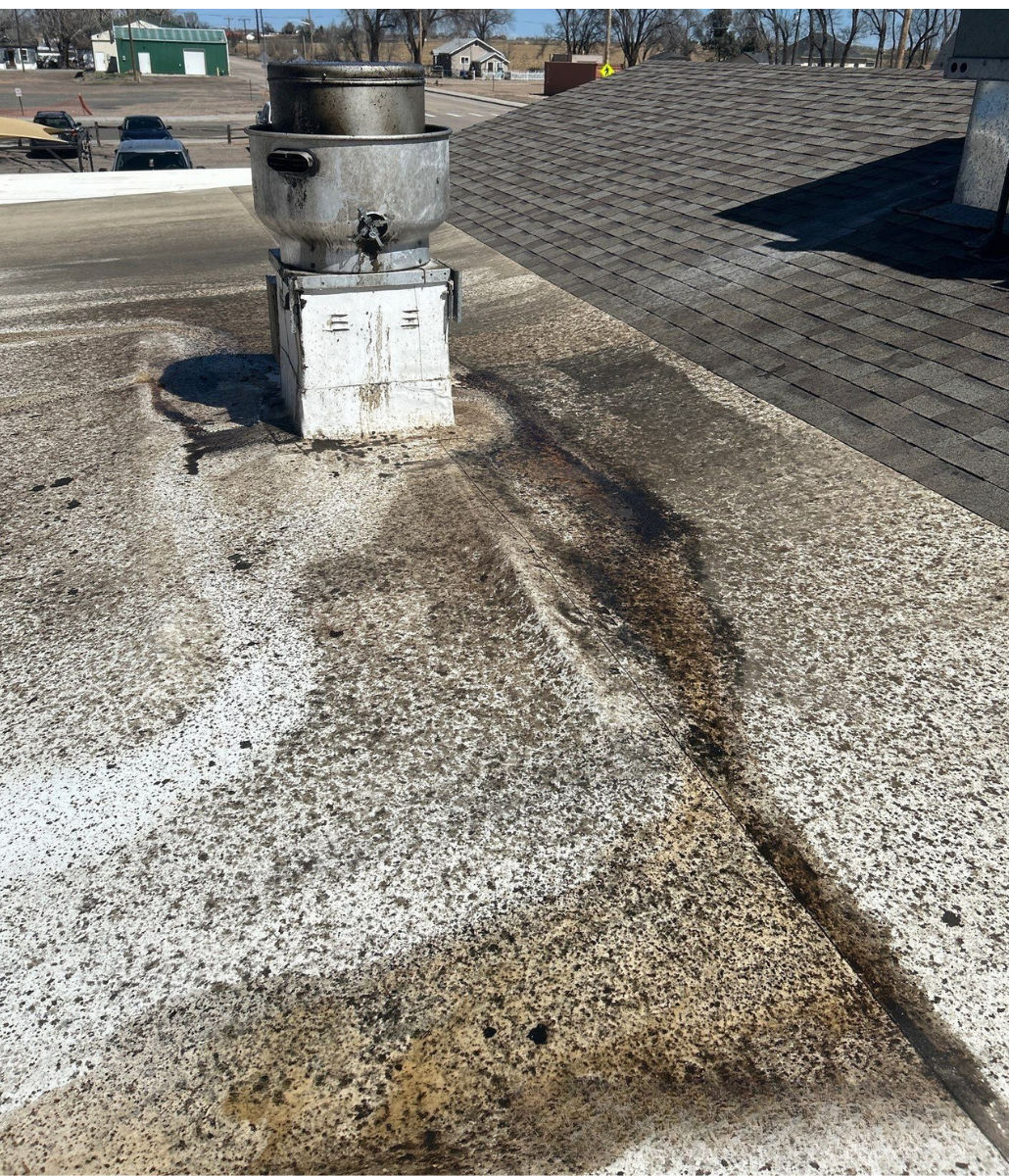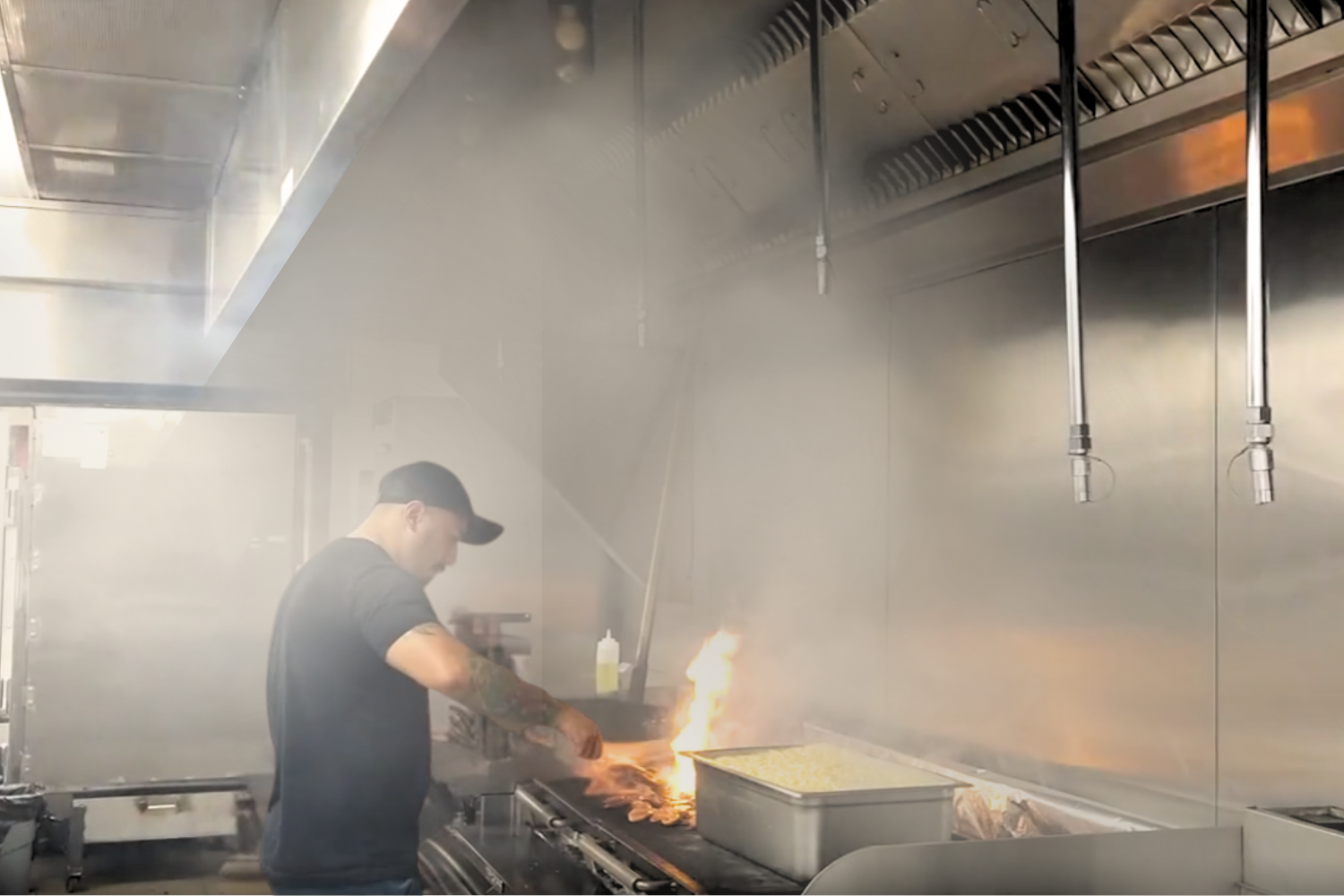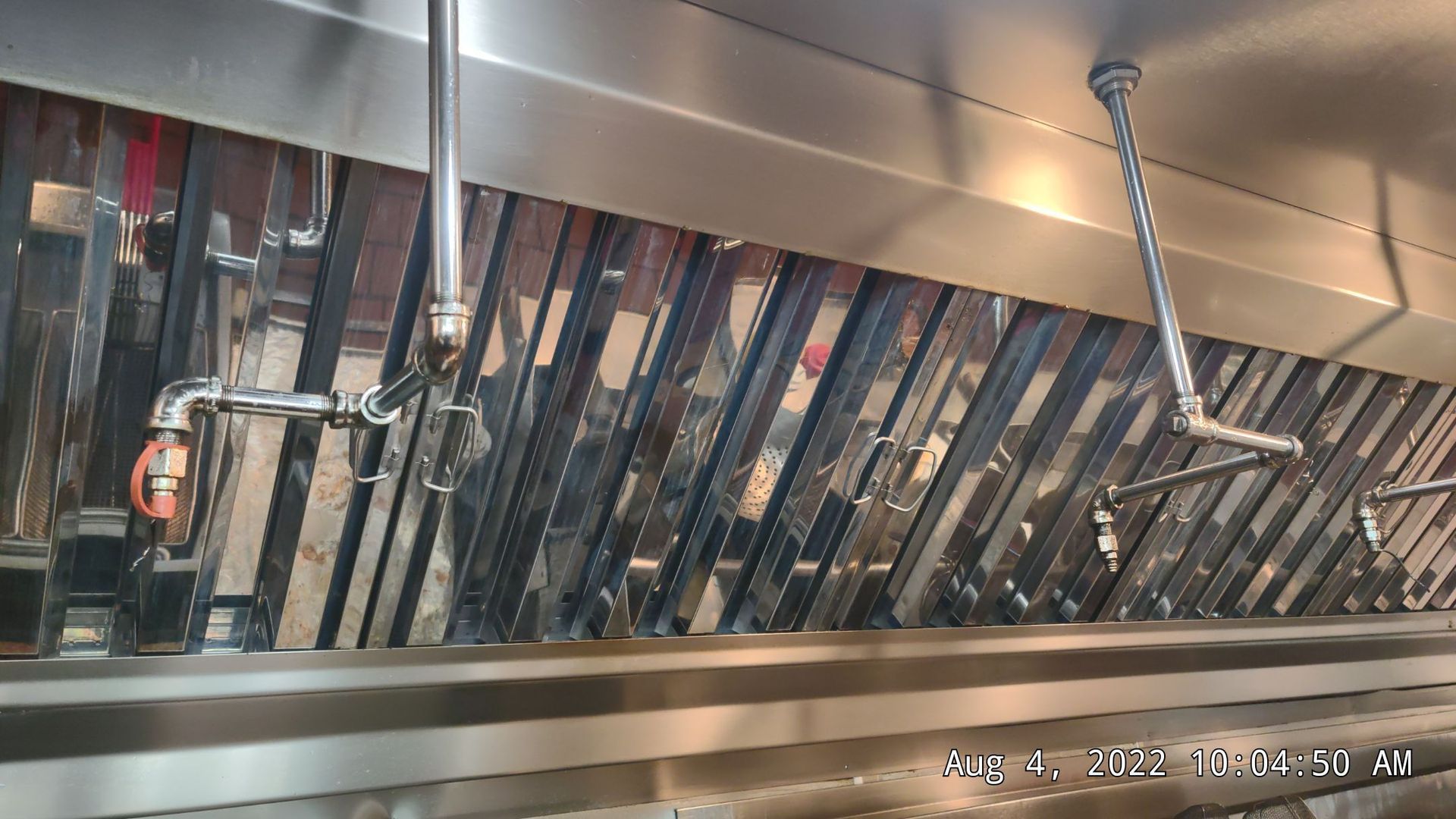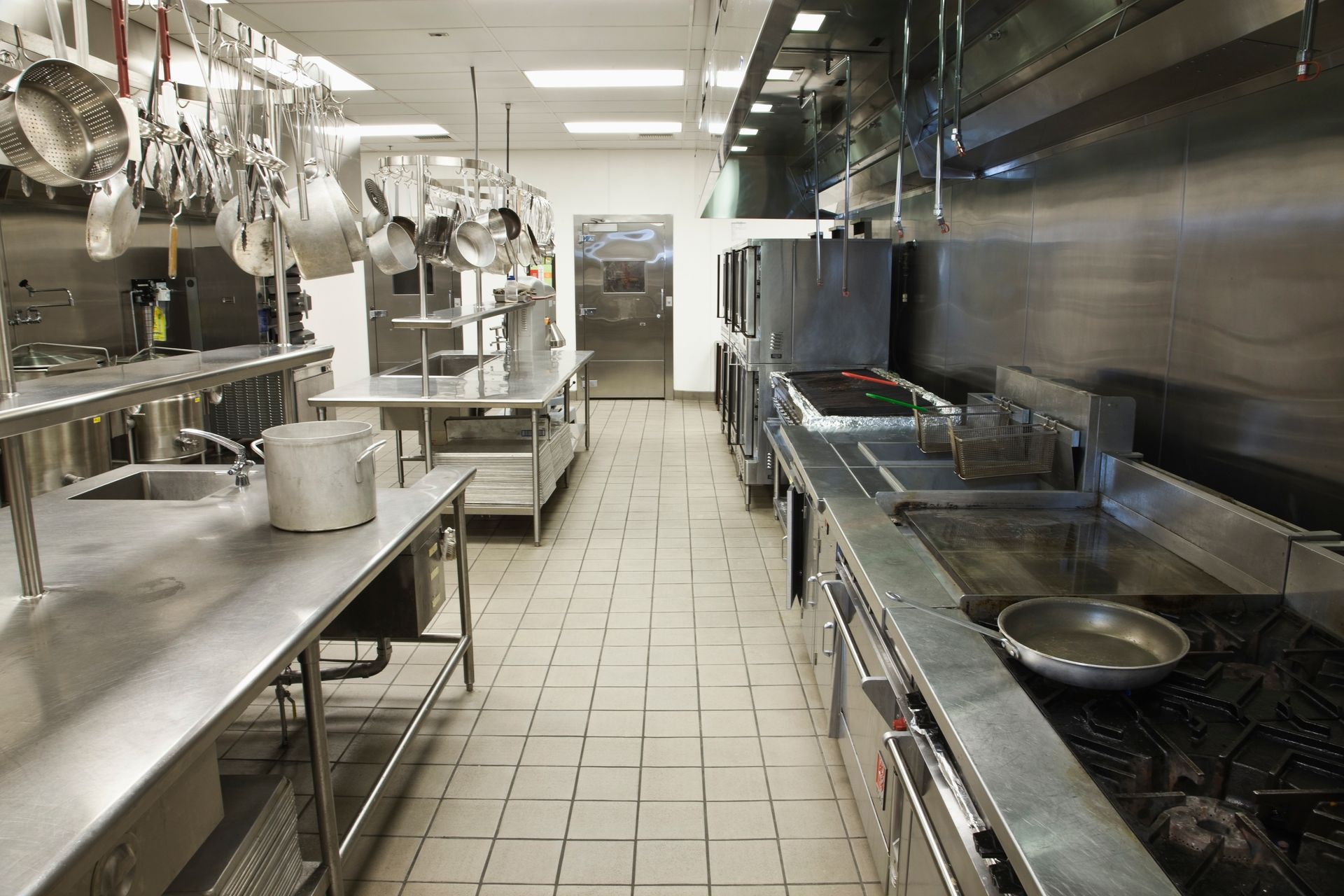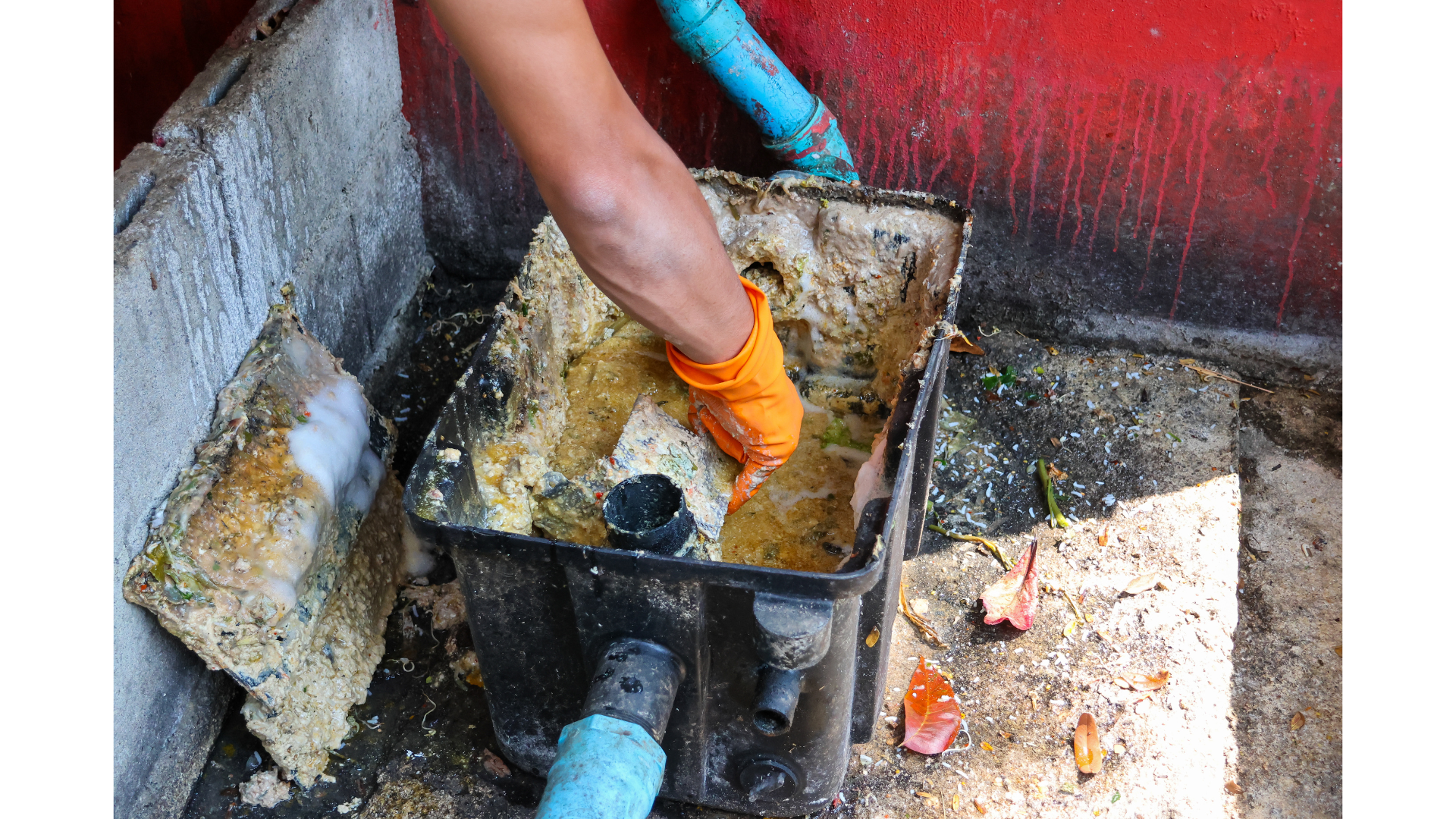Most restaurants have their kitchen exhaust systems (aka hoods) cleaned every 3, 6, or 12 months to remove the grease from the entire system. Your hood cleaners are responsible to meet the requirements of NFPA 96 - Standard for Ventilation Control and Fire Protection of Commercial Cooking Operations. Chapter 12 (2021 Ed) provides the standards and guidelines
for the inspection and cleaning of the kitchen exhaust systems. When they complete their job, they issue a certification of services performed and report whether there are deficiencies in your system. That certification tag on the hood expires after a certain period of time depending on the marked tag. Many restaurants allow their filters to build up through the months until their hood cleaners come in and then have that company clean them. The problem with that is that the filters are way past a fire-ready point after months of neglect. Grease filters act as your first line of defense in a fire and should prevent flames from passing outside of the protection zone of your fire suppression system (second line of defense in a fire).
